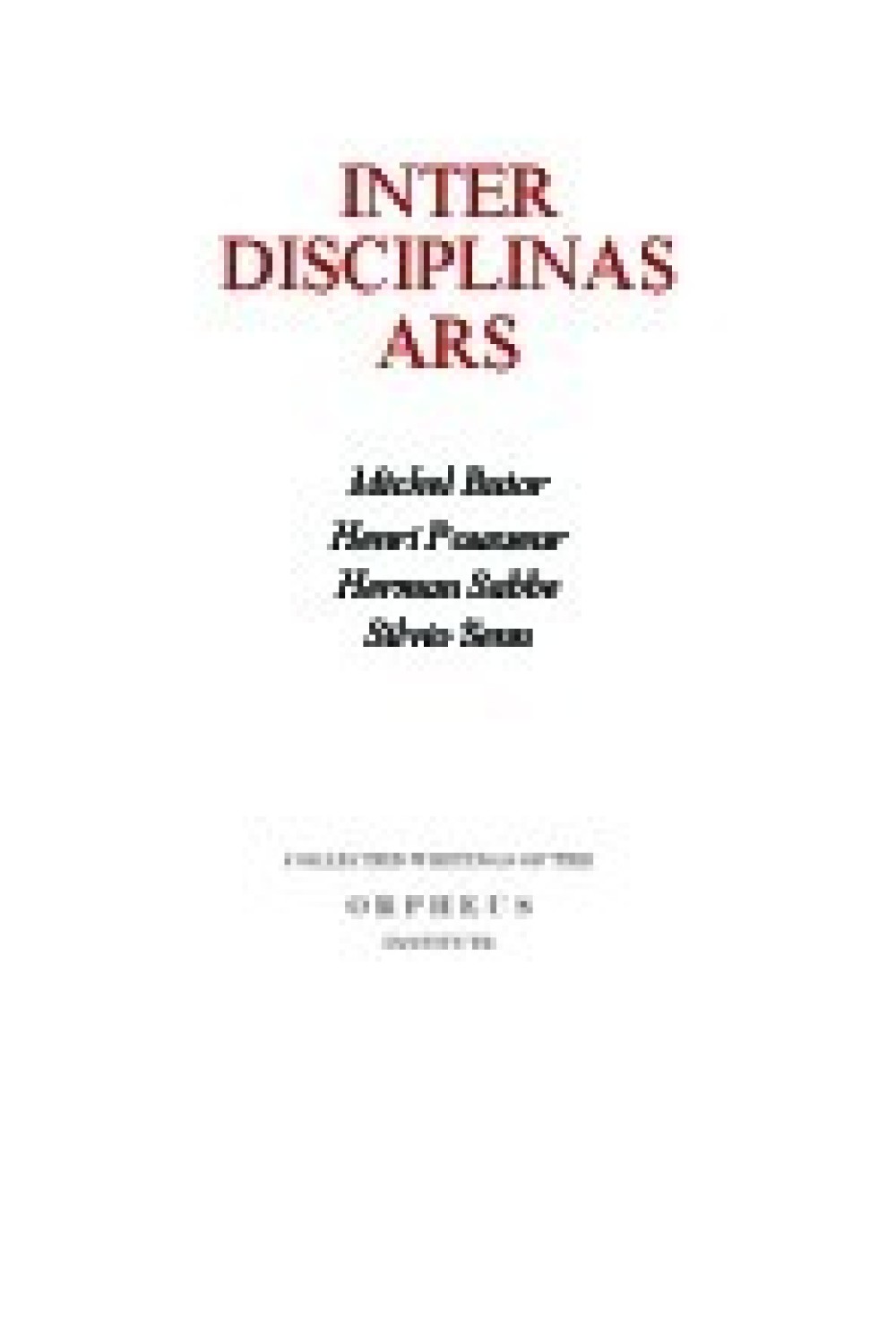
Inter Disciplinas Ars
- Author(s)Michel Butor, Henri Pousseur, Herman Sabbe and Silvio Senn.
- Publication year1998
- SeriesCollected Writings of the Orpheus Institute Series
- CodeISBN 9789061869290
- Price€ 23,00
Order publication
Inter disciplinas ars is the first publication in the series Geschriften van het Orpheus Instituut/Collected writings of the Orpheus Institute. The series comprises articles concerning the activities of the Orpheus Institute.
For this first publication, a deliberate choice was made for a multidisciplinary approach: a confrontation with four authors, each presenting their views on music based on their own specific backgrounds.
In Writing for musicians (Ecrire pour les musiciens) author Michel Butor presents a highly individual reflection on the potential relations between language and music. Based on his own work and examples from history, he illustrates how intensely - and often in very surprising ways - the two phenomena are interwoven with each other, not only in songs and opera, but also in purely instrumental music. He is also the author of the lyrical evocation L'école d'Orphée.
In A brief appraisal of an investigation as obstinate as it is meandering (Petit bilan d'une recherce aussi têtue que sineuse) Henri Pousseur skeches an account of his quest as a composer and educationalist It is a quest which begins with Webern and serialisme and which, after a great many wanderings, leads from the 1970s onwards towards a sort of panhistorical and multicultural 'total music' with a very specific character.
In the article The new music in the 20th century - a number of key concepts essential for interpretation (De nieuwe muziek in de 20ste eeuw, een aantal sleutelbegrippen bij een interpretatie), the musicologist Herman Sabbe looks for the hidden correspondences between two apparently antogonist avant garde movements from the second half of the 20th century, i.e. serialism and aleatoric music. The total determination which characterises serialism and the total indetermination of aleatoric music ultimely proved to lead to the same results: disappearance of the subject, indifference and play.
Finally in Art in the era of objective nihilism (Kunst im Zeitalter des objektiven Nihilismus) the philosopher Silvio Senn exposes the pathological principles on which our Western culture is based He turns his back on art which reproduces or embellishes nihilism and, following on from Friedrich Nietzsche, demonstrates the need for a different type of art, a different type of music which affirms and reveres existence and the world. In short, a truly Dionysian art.
The texts in this book are the written versions of the papers delivered during a seminar held at the Château de la Rocq in Arquennes in October 1997. The mentors and students of the Orpheus Institute were given an opportunity during the seminar to enter into a discussion with the four guest speakers. Fragments from these discussions are also included.
It was decide to produce a multilingual publication, with the original texts in addition to an English translation.
A Dutch edition is also available.